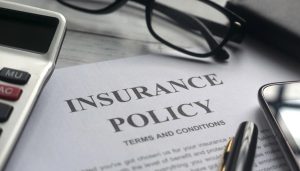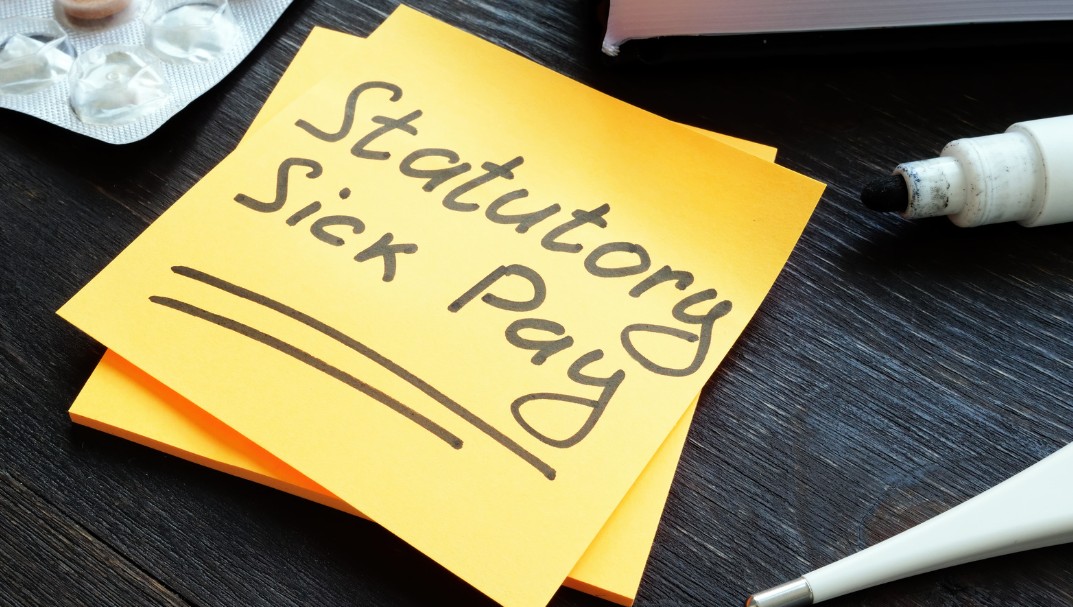SSP When Self Employed | What You Need to Know?
Falling sick as a self-employed worker can be a daunting experience, especially when financial stability is at stake. Unlike employees who receive Statutory Sick Pay (SSP), self-employed individuals face a different set of challenges when illness prevents them from working.
Without an employer to rely on, how can you manage your income during tough times? What support options exist to help you stay afloat?
Navigating sickness as a self-employed professional requires careful planning and awareness of available resources. In this guide, we’ll uncover the key financial assistance options and strategies to help you safeguard your income when you need it most.
What is Statutory Sick Pay?

Statutory Sick Pay (SSP) is a UK government-mandated financial support provided to employees who are unable to work due to illness.
It ensures that eligible workers continue to receive an income while they recover. As of 2025, SSP pays £118.75 per week for up to 28 weeks, starting from the fourth day of illness.
To qualify, an individual must be an employee, earn at least £123 per week, and have been ill for four consecutive days.
SSP is typically paid by an employer as part of a regular salary, meaning that those who work for themselves are not covered under this scheme.
Self-employed individuals, including sole traders, freelancers, and contractors, must seek alternative forms of financial support if they are unable to work due to illness.
Government-backed schemes such as Employment and Support Allowance (ESA) or Universal Credit may provide financial relief instead.
Can You Get SSP When Self Employed?
No, self-employed individuals do not qualify for Statutory Sick Pay (SSP). This is because SSP is an employer-funded scheme that only applies to those on a company payroll.
Since self-employed individuals work for themselves and do not have an employer to pay SSP, they must explore other financial support options when ill.
However, there are alternative benefits available for self-employed workers facing financial difficulties due to sickness.
These include Employment and Support Allowance (ESA), which provides financial help based on health conditions, and Universal Credit (UC) for those on low income.
Additionally, self-employed individuals can take out income protection insurance, which offers financial support when they are unable to work.
While SSP is not an option, careful financial planning and understanding of available benefits can help self-employed workers manage income loss during illness.
Why Don’t Self-Employed People Get SSP?

SSP is only available to employees because it is paid by an employer. Since self-employed individuals do not have an employer, they do not qualify for SSP.
Instead, they are responsible for managing their own income and financial stability when unable to work due to illness.
Key reasons why SSP does not apply to self-employed people:
- SSP is funded by employers: Self-employed individuals do not have an employer to provide this support.
- No PAYE payroll: SSP is calculated based on PAYE earnings, which self-employed individuals do not have.
- No workplace sick leave policies: Unlike employees, self-employed workers do not have employment contracts that include sick leave benefits.
Without SSP, self-employed workers must explore alternative benefits, personal savings, or private insurance to cover income loss when sick.
Government-backed support such as ESA and Universal Credit can help those who meet the eligibility criteria.
What Sickness Benefits Can You Claim if You’re Self-Employed?
Although SSP is unavailable, self-employed individuals may qualify for other sickness benefits in the UK. The available benefits for self-employed individuals are:
Employment and Support Allowance (ESA)
Provides financial aid for self-employed individuals with long-term illnesses or disabilities impacting their ability to work. Eligibility depends on National Insurance contributions and health assessments.
Universal Credit (UC)
Offers income-based support for self-employed workers whose earnings drop due to sickness. It considers overall income and living costs to provide financial relief.
Personal Independence Payment (PIP)
Helps those with long-term health conditions or disabilities manage daily living and mobility costs. Payments depend on the severity of the condition.
Council Grants & Local Hardship Funds
Some local authorities offer financial aid to self-employed individuals struggling due to illness. Support varies by location and circumstances.
To qualify for these benefits, self-employed individuals must meet specific eligibility criteria related to their health condition, income level, and National Insurance contributions.
How Does Employment and Support Allowance (ESA) Help Self-Employed Workers?

Employment and Support Allowance (ESA) provides financial aid to self-employed individuals who cannot work due to a health condition or disability.
Unlike SSP, ESA is based on National Insurance contributions (NICs) rather than employer payments.
Key Points About ESA
- Available to self-employed individuals who meet the health and NICs criteria.
- Weekly payment of up to £126.45 for the first 13 weeks (work-related activity group), with potential increases up to £138.20 per week (support group) based on assessment results. (April 2024 – March 2025 rates).
- Application can be made online via Gov.uk or through the Jobcentre Plus.
ESA is a valuable alternative for self-employed workers who are too ill to continue working and need financial support during their recovery.
Can Self-Employed Individuals Claim Universal Credit When Sick?
Yes, self-employed individuals may qualify for Universal Credit (UC) if their income is significantly reduced due to illness.
UC provides monthly payments to individuals on a low income, including those who cannot work due to sickness.
However, the Minimum Income Floor (MIF) applies, which assumes that a self-employed worker earns a set minimum amount.
If a person’s actual earnings fall below this threshold due to illness, their Universal Credit payment may be lower.
Applicants should provide medical evidence to support their claim and ensure they meet eligibility requirements.
Those with long-term health conditions may also be referred for a Work Capability Assessment (WCA) to determine their eligibility for additional financial support.
It is advisable for self-employed individuals to report their income changes to Universal Credit as soon as possible to ensure accurate payments.
Should Self-Employed People Get Income Protection Insurance?

Self-employed individuals should consider income protection insurance to safeguard against financial instability when sick. This insurance provides regular payments to replace lost income due to illness or injury.
Policies vary based on coverage, waiting periods, and payout percentages. While some plans offer short-term income replacement, others cover long-term disabilities.
The cost of insurance depends on factors such as age, profession, and health history. It can be a crucial financial backup for self-employed individuals without access to SSP or employer benefits.
Choosing the right insurance provider and policy terms is essential to ensure sufficient coverage in case of illness.
Self-employed workers should compare different insurance plans and consider policies that provide comprehensive income protection tailored to their profession.
What Government Grants or Support Schemes Exist for Self-Employed People Who Are Sick?
While there is no direct SSP alternative for self-employed workers, the UK government offers various financial support schemes for those unable to work due to illness.
Available Support Options
- New Style ESA: Financial assistance for self-employed individuals who have made enough NICs.
- Local Authority Hardship Grants: Some councils offer emergency funds for self-employed workers.
- Charitable Support Funds: Industry-specific organisations provide grants for professionals who are unable to work.
Applying for government-backed benefits and emergency grants can help self-employed individuals manage financial difficulties during illness.
How to Financially Prepare for Illness as a Self-Employed Individual?

Self-employed individuals must take proactive steps to ensure financial stability in case of illness.
Without access to Statutory Sick Pay (SSP), a strong financial plan can help cover expenses during unexpected work absences.
Preparing in advance can prevent financial hardship and allow for a stress-free recovery. Here are few key financial planning strategies:
Build an Emergency Fund
Aim to save three to six months’ worth of living expenses for security. This ensures financial stability during unexpected income loss.
Take Out Income Protection Insurance
This policy provides monthly payouts for financial stability. It helps replace lost income if illness prevents you from working.
Set Up a Business Savings Account
Keep personal and business finances separate for better management. This makes it easier to handle unexpected financial setbacks.
Make National Insurance Contributions (NICs) on Time
Regular NIC payments help you qualify for Employment and Support Allowance (ESA) benefits. Staying up to date ensures access to benefits.
Explore Government Support Options
Learn about Universal Credit, PIP, and local grants for assistance. Knowing your options in advance can provide crucial financial relief.
By implementing these financial strategies, self-employed workers can reduce the impact of sickness-related income loss and maintain financial security.
What Should Self-Employed Workers Do If They Are Too Sick to Continue Working?

When illness becomes severe and long-term, self-employed individuals may need to pause or permanently stop working.
Without an employer to provide support, it’s essential to explore financial aid and alternative work options.
Steps to Take When too sick to Continue Working
- Assess eligibility for long-term benefits: Consider applying for Employment and Support Allowance (ESA), Personal Independence Payment (PIP), or Universal Credit (UC).
- Look into flexible work options: If possible, transition to remote or part-time work to maintain some income.
- Notify clients and manage contracts: Inform ongoing clients of your situation and negotiate timelines or contract pauses.
- Check for industry-specific grants: Many trade organisations and charities provide financial assistance to sick self-employed professionals.
- Seek professional financial advice: Consulting a financial advisor can help restructure debts and manage expenses.
If illness prevents any form of work, applying for long-term sickness benefits or disability support is the best course of action to maintain financial stability.
Conclusion
Since Statutory Sick Pay (SSP) is not available to self-employed workers, they must rely on alternative financial support when sick.
Options such as Employment and Support Allowance (ESA), Universal Credit, and personal savings can help cover lost income.
Additionally, income protection insurance can provide financial stability in case of unexpected illness.
Planning ahead, understanding available benefits, and having an emergency financial plan can ensure self-employed individuals stay financially secure during periods of ill health.
FAQs About SSP When Self Employed
Can limited company directors pay themselves SSP?
Yes, if they are on payroll and earn at least £123 per week, they can claim SSP. They must meet the standard eligibility criteria set by HMRC.
Can self-employed people get SSP if they have a part-time job?
Yes, but only if their part-time employer provides SSP and they meet the earnings threshold. Self-employment income does not count towards SSP eligibility.
How much ESA can self-employed people receive?
Self-employed individuals can receive up to £84.80 per week in ESA, depending on their circumstances. Payments may increase after the initial assessment period.
What happens if a self-employed person is sick for a long time?
They may qualify for New Style ESA, Universal Credit, or PIP if their condition prevents them from working. Long-term illness support depends on medical assessments.
Can self-employed people claim benefits for mental health-related illnesses?
Yes, they can apply for ESA, PIP, or Universal Credit if their mental health condition affects their ability to work. Medical evidence is required for eligibility.
Are there any tax deductions for self-employed sickness?
Yes, self-employed individuals can deduct health insurance, business interruption insurance, and other relevant expenses. These deductions reduce taxable income.
What should self-employed people do if they need urgent financial help?
They can apply for Universal Credit, hardship grants, or council emergency funds. Charities and industry-specific support organisations may also provide financial aid.
Can a self-employed person pause National Insurance contributions while sick?
Yes, they can apply for a NIC exemption if their income drops below the threshold. However, pausing NICs may affect future benefit entitlements.







